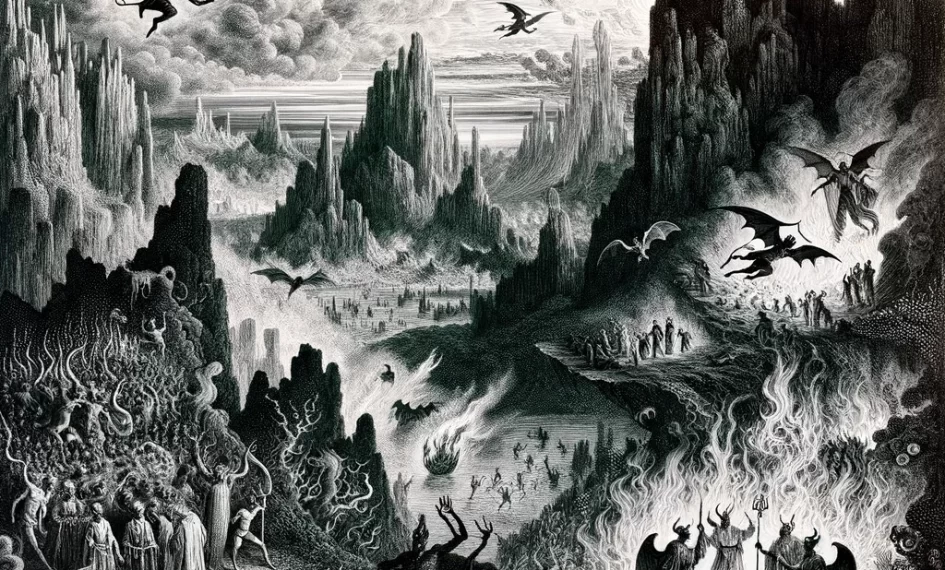- Definition: Pandemonium refers to wild and noisy disorder or confusion; uproar. It’s often used to describe a chaotic situation, characterized by a tumultuous and noisy commotion.
- Etymology and Origin:
- The word “pandemonium” was coined by the English poet John Milton in his epic poem “Paradise Lost” (1667). It comes from two Greek roots: “pan,” meaning “all,” and “daimonion,” meaning “little spirit” or “little demon.”
- In “Paradise Lost,” Pandemonium is the name of the capital of Hell, “the High Capital, Of Satan and his Peers.” The word was created to describe the home of all demons, thus literally meaning “all demons.”
- Over time, the word’s usage extended beyond its literary origin. It came to be used more broadly in the English language to describe any place or situation that is noisy, chaotic, and full of confusion, losing its original association with a collective of demons.
The term “pandemonium” is a fascinating example of a literary invention that has become a common term in the English language, its meaning evolving from its specific origin in Milton’s work to a broader metaphorical use.



